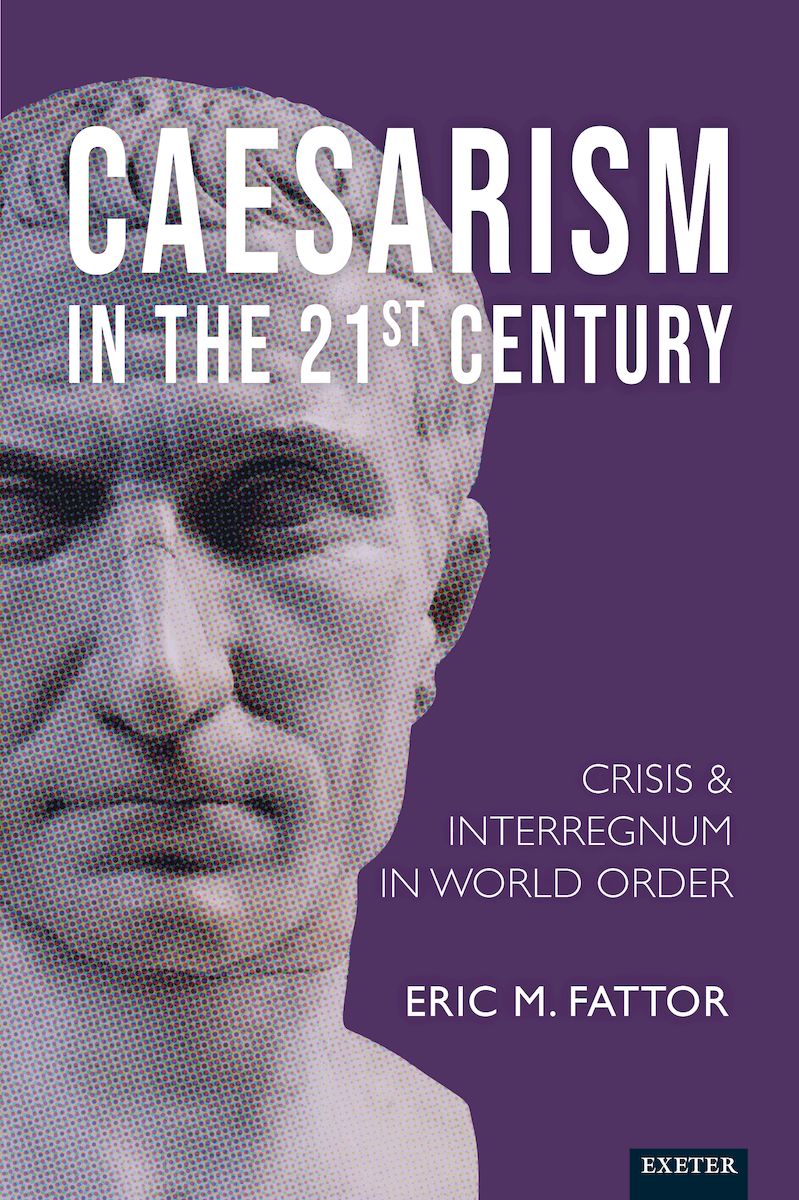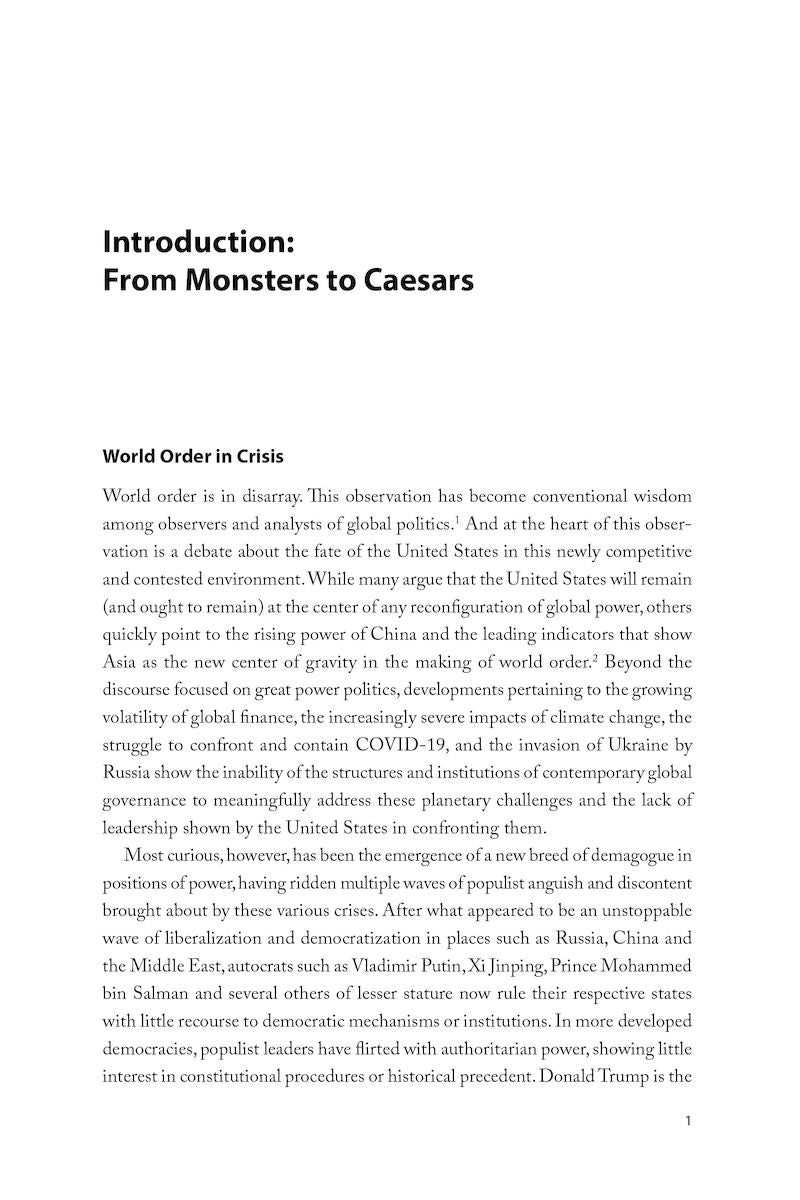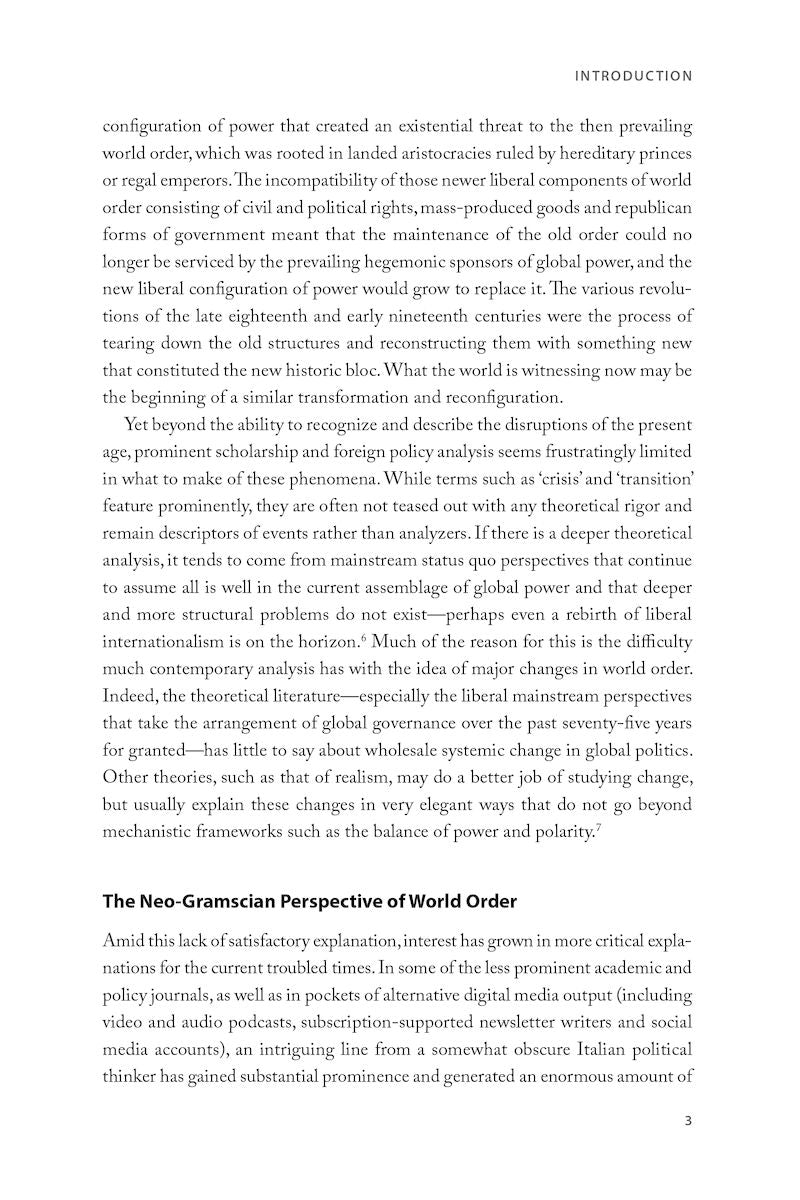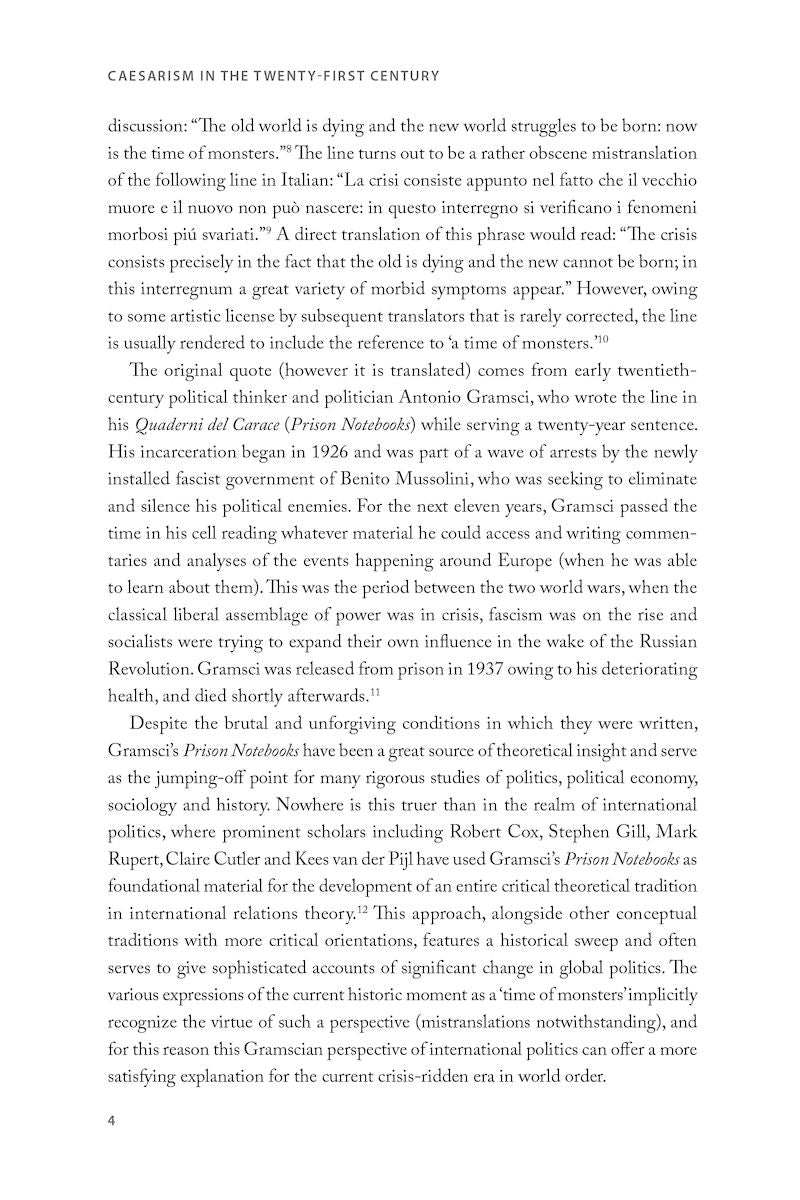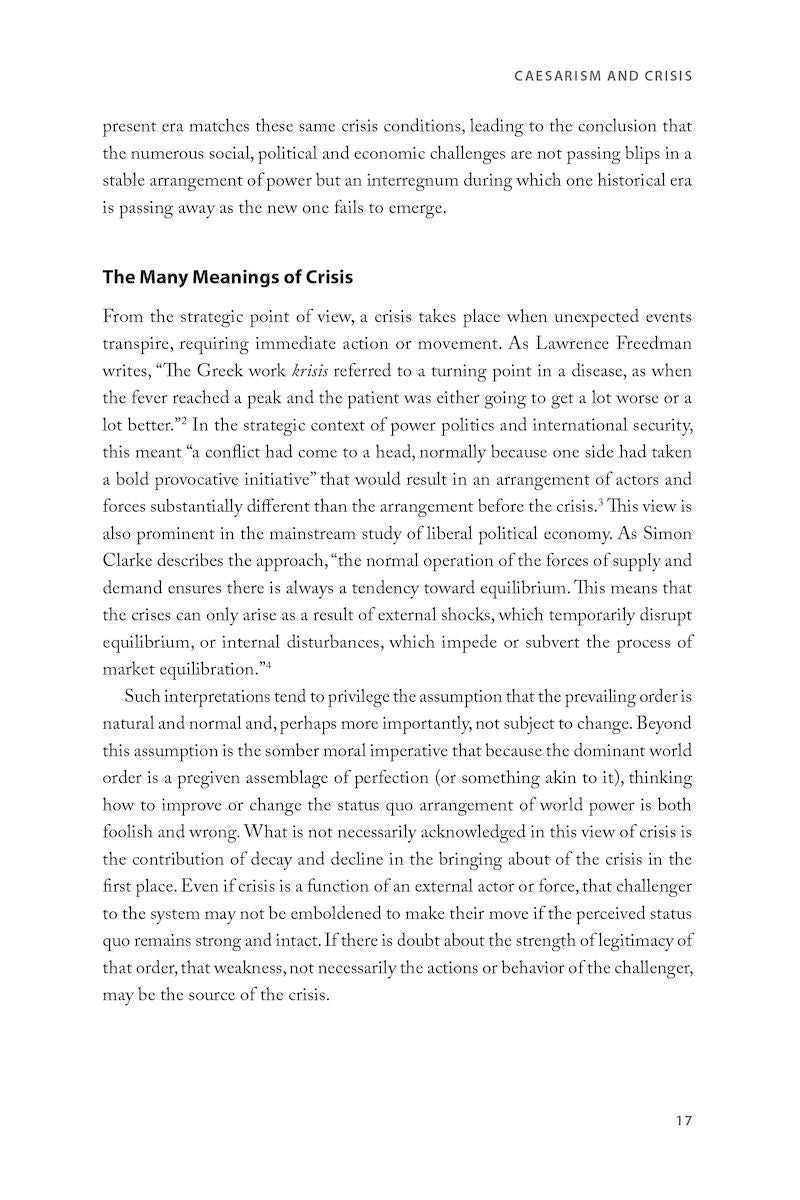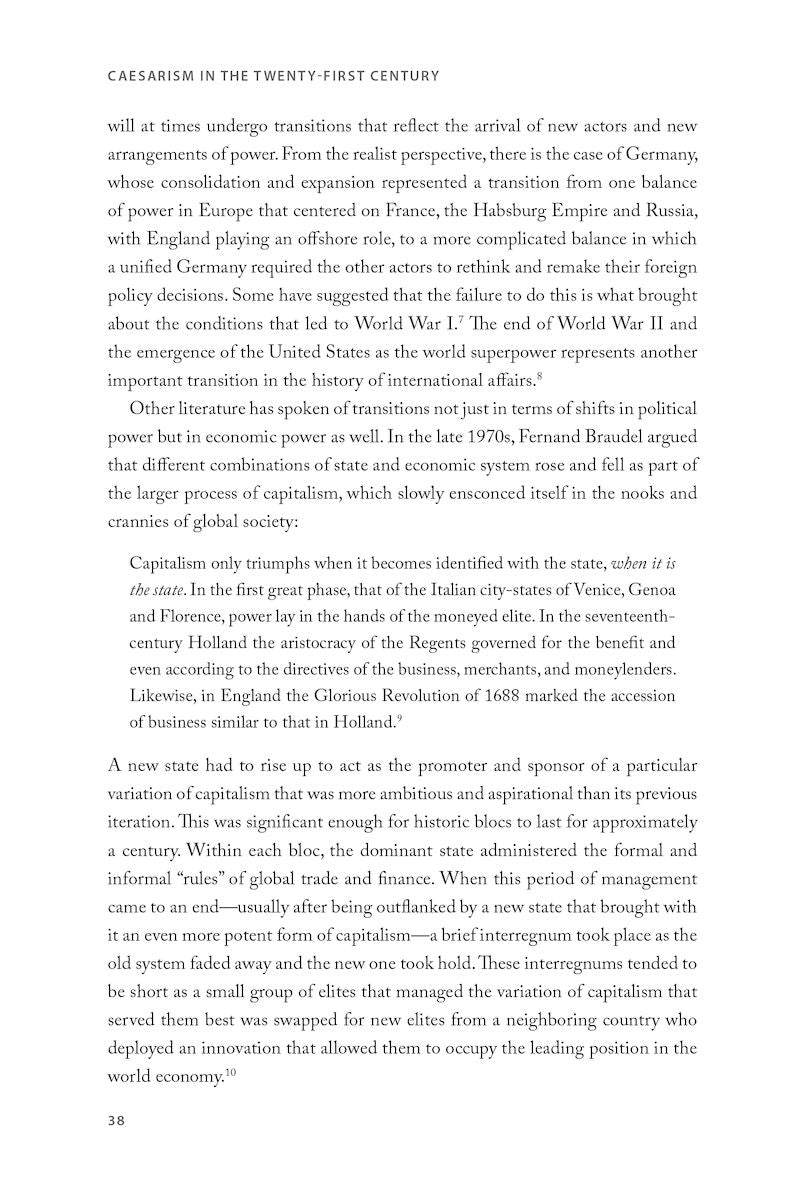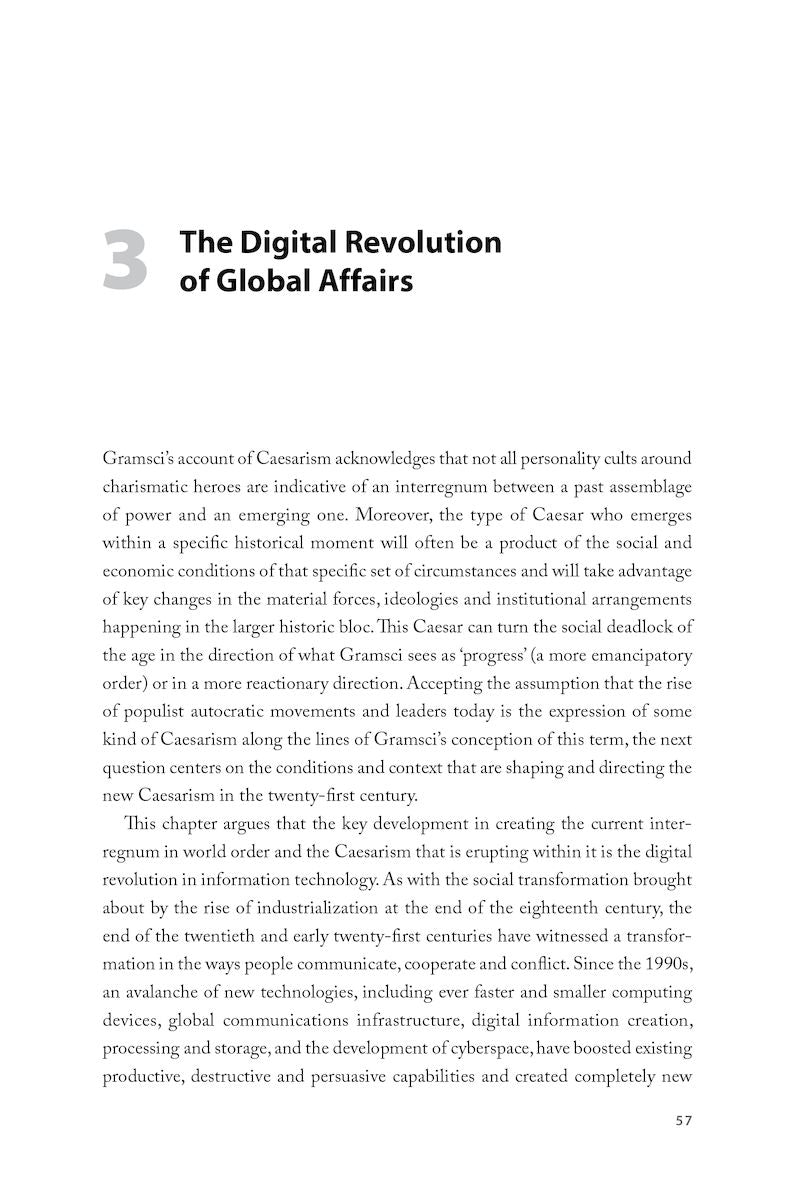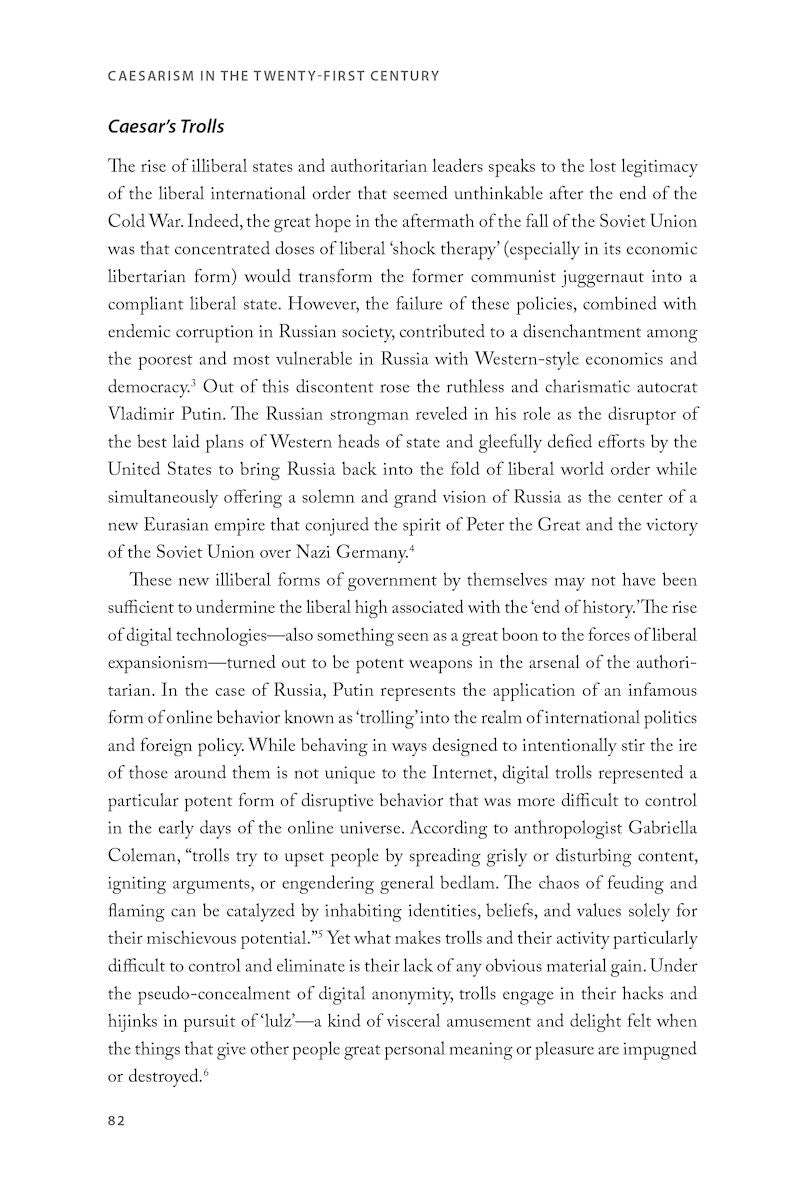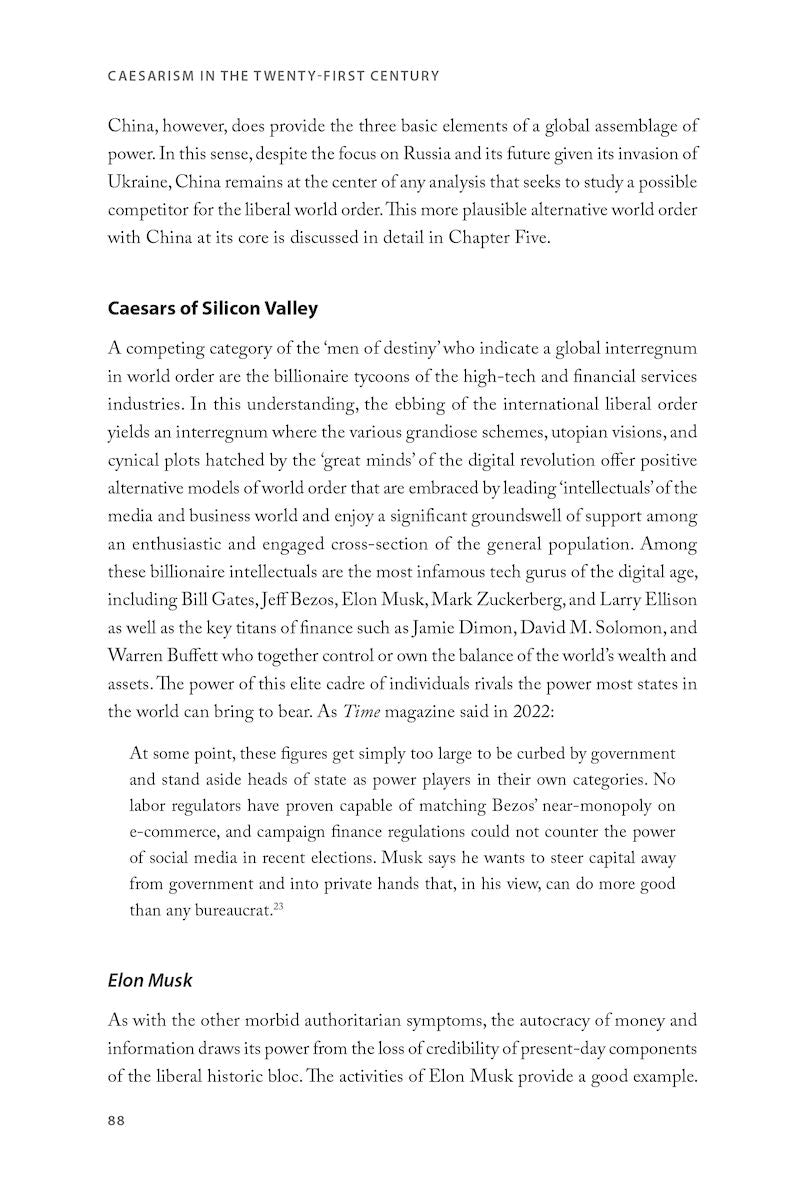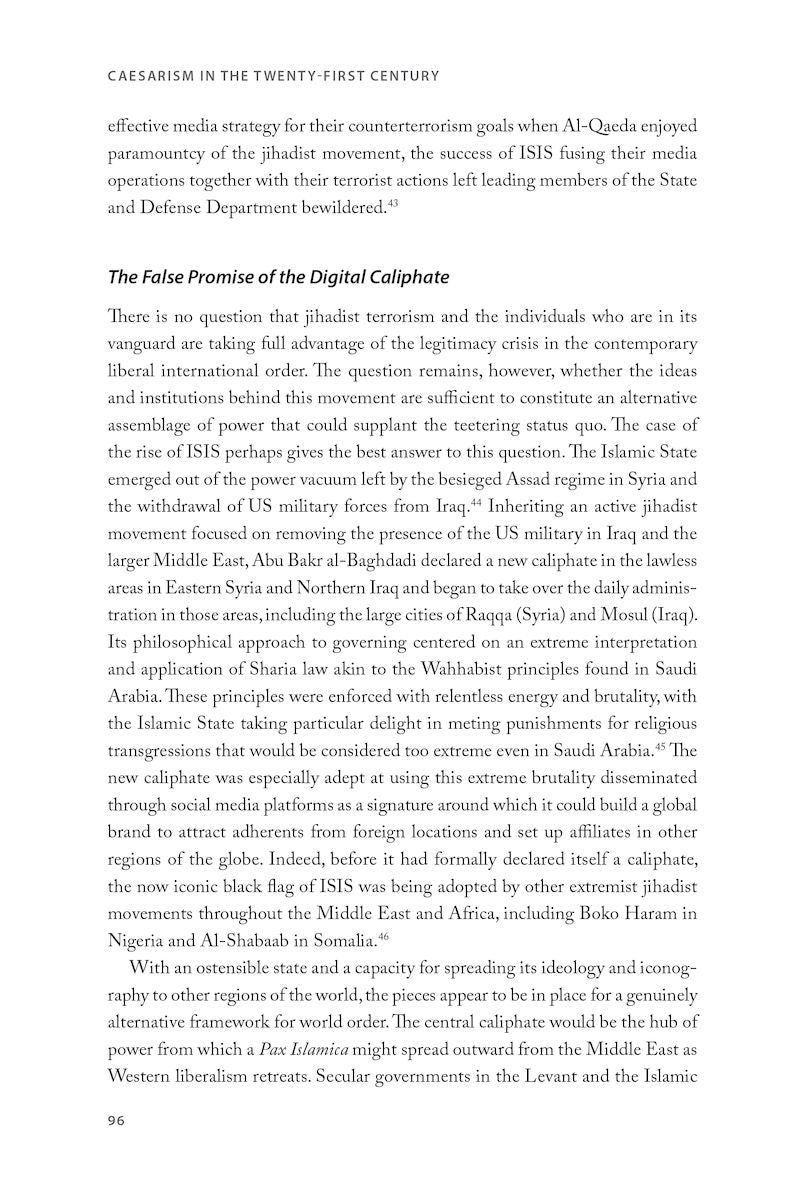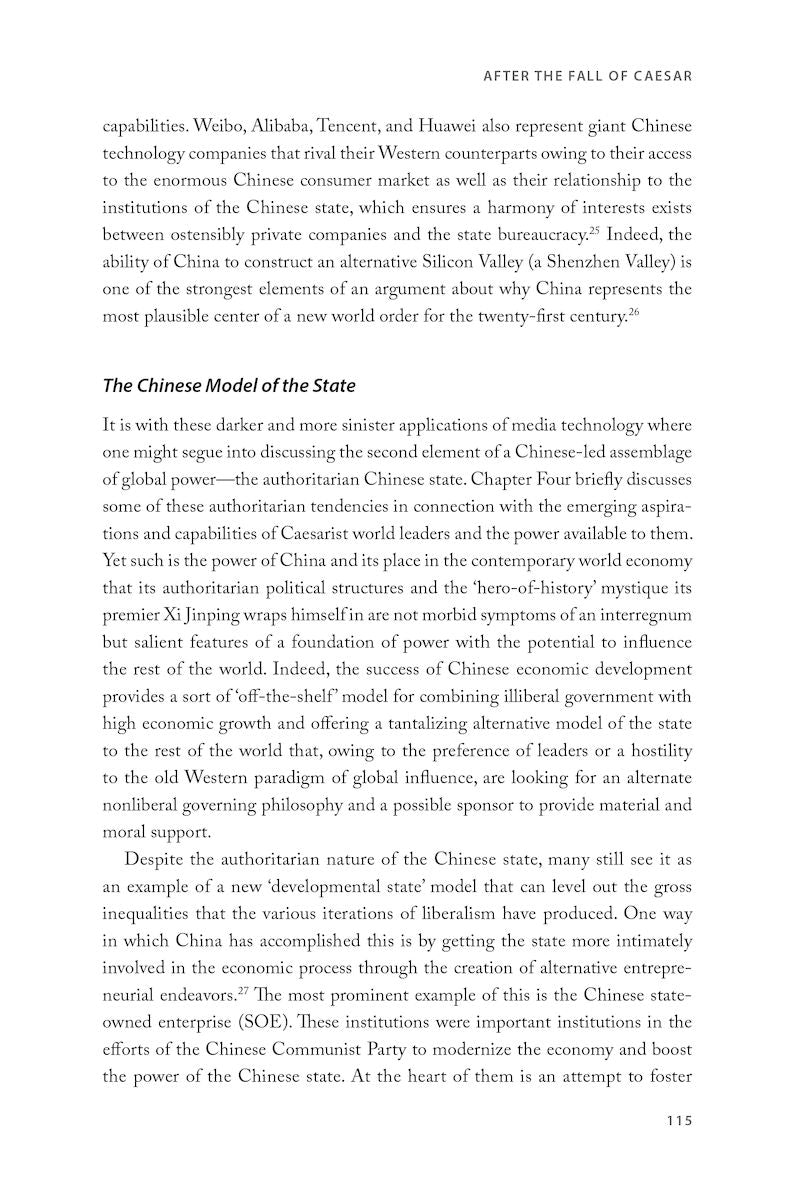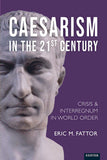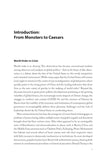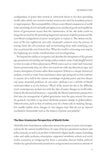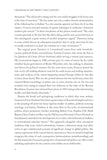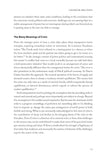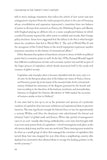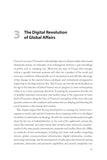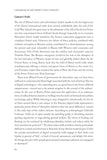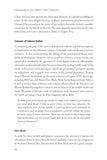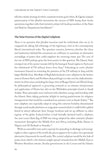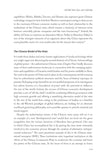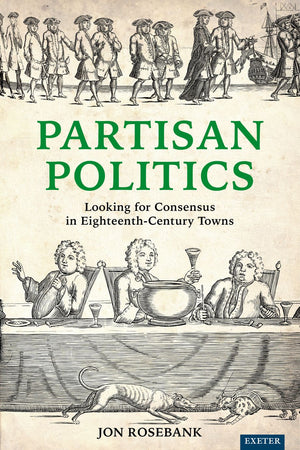University of Exeter Press
Caesarism in the 21st Century
Crisis and Interregnum in World Order
Couldn't load pickup availability
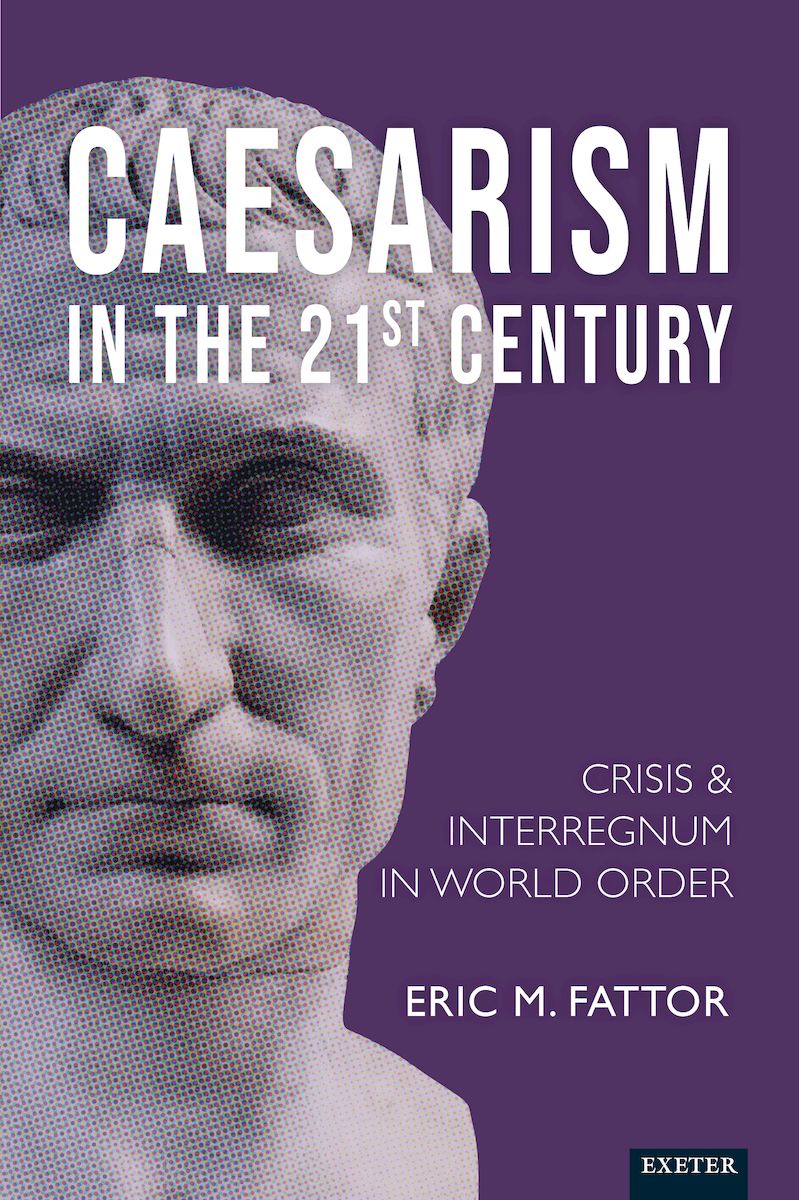
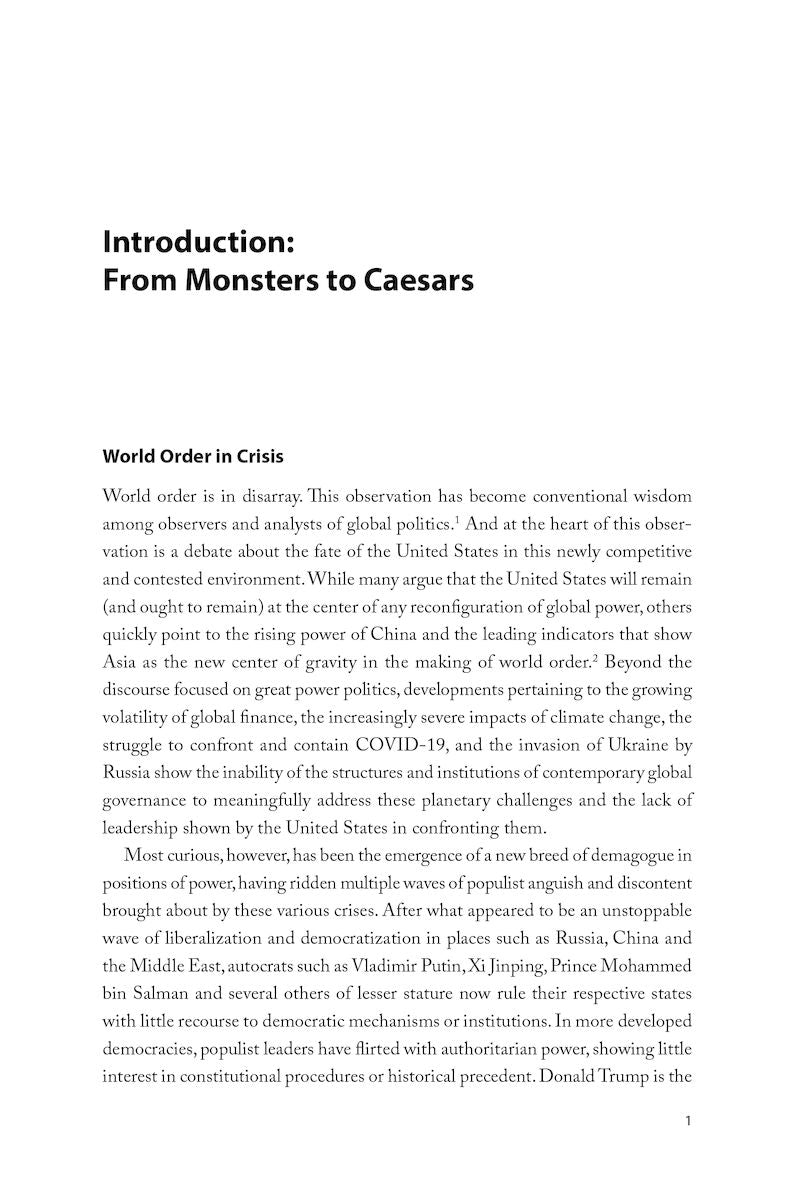
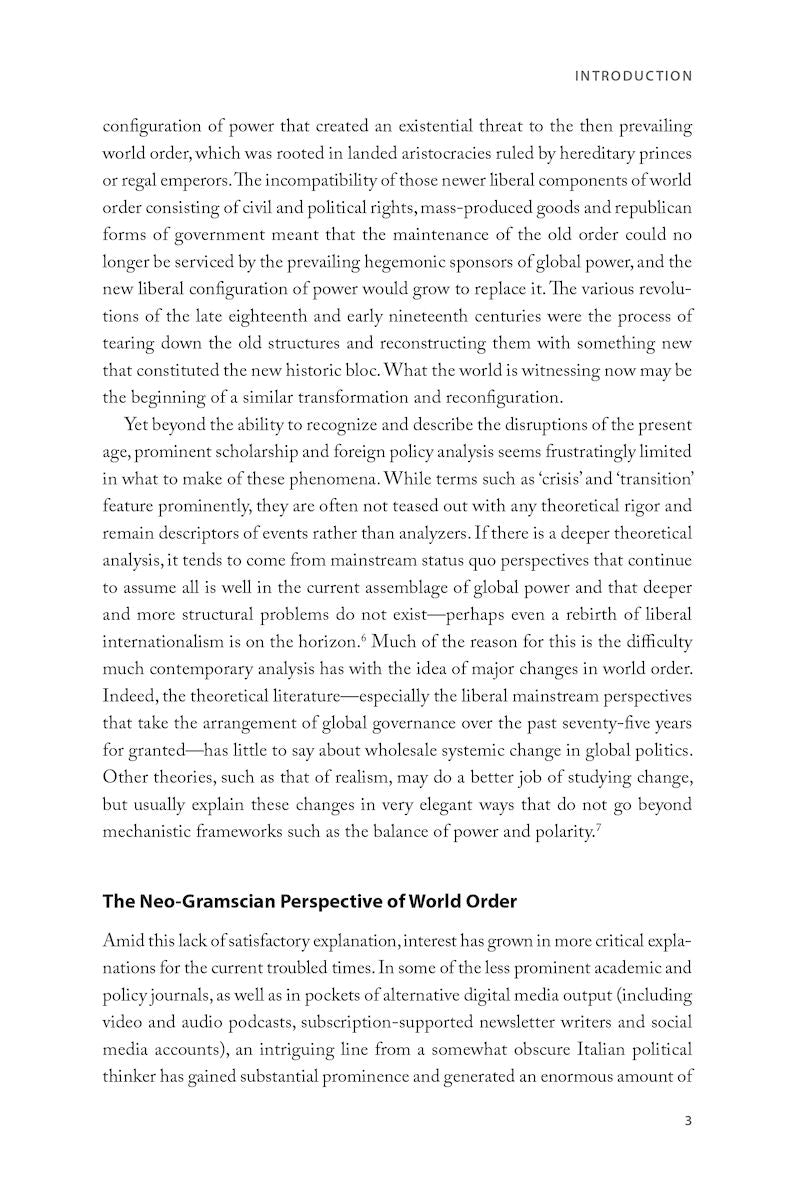
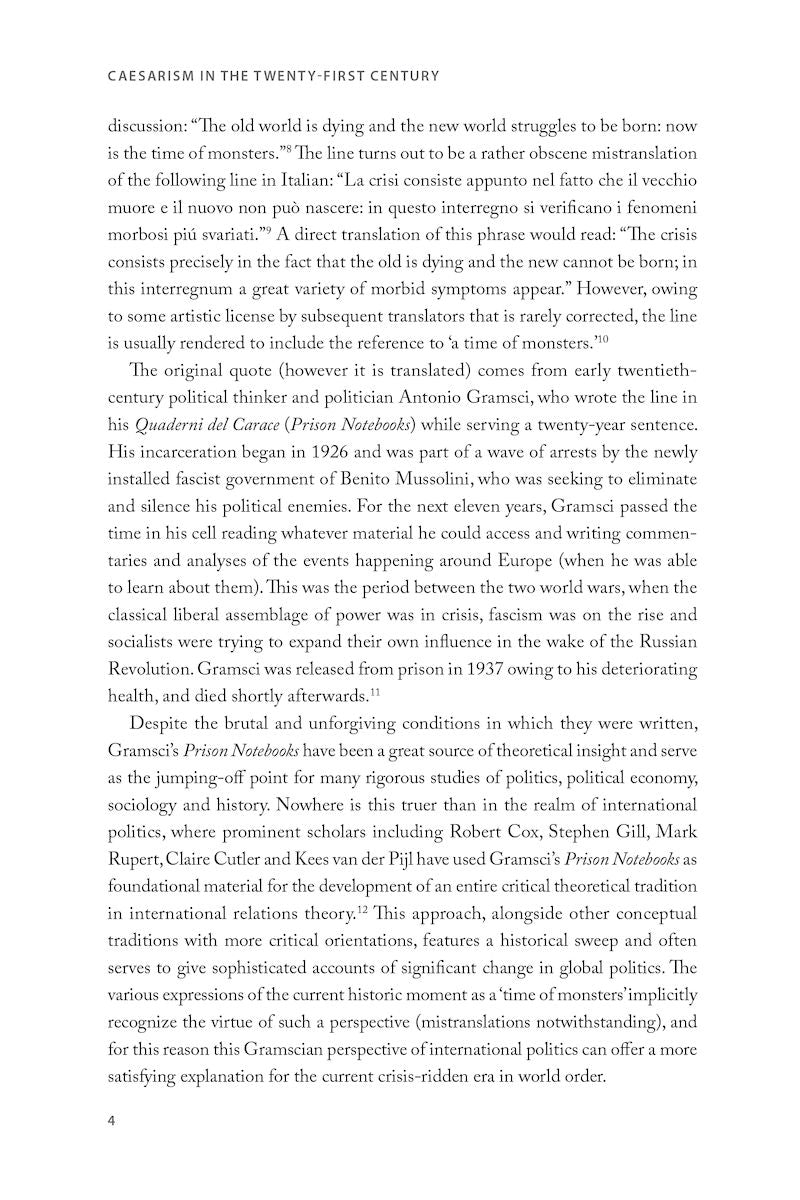
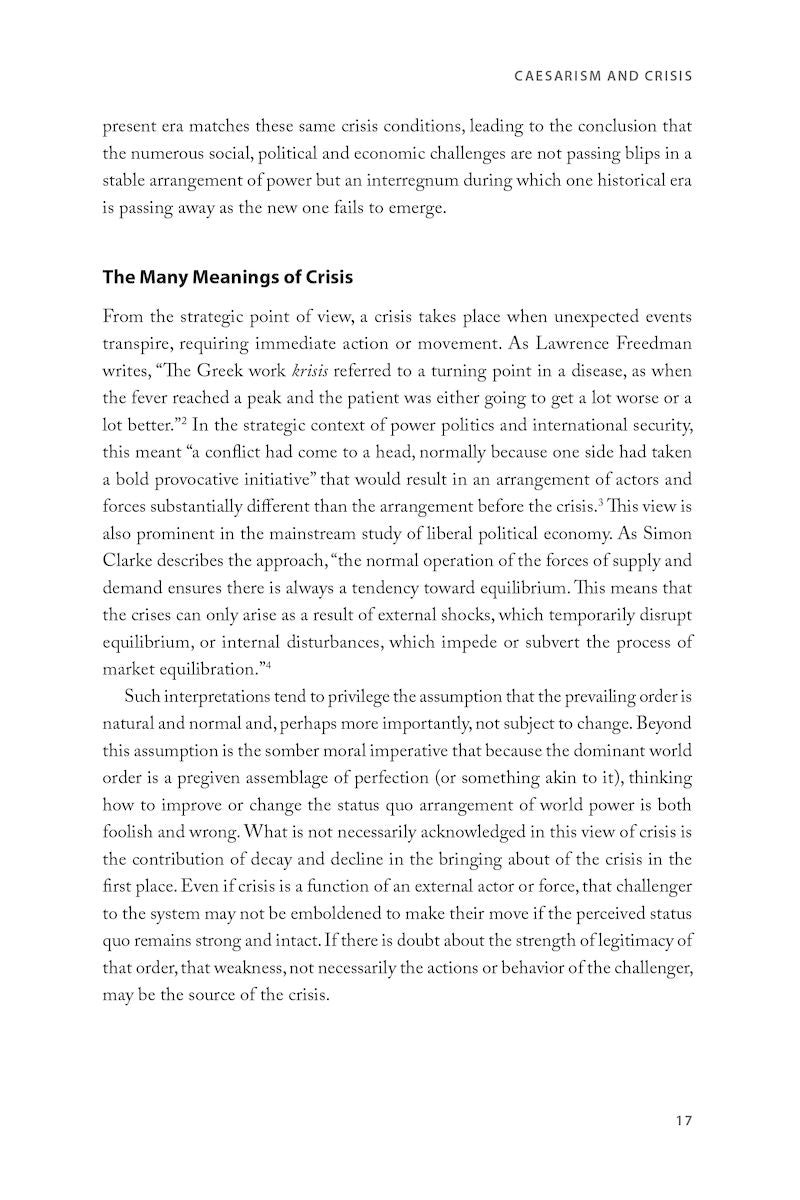
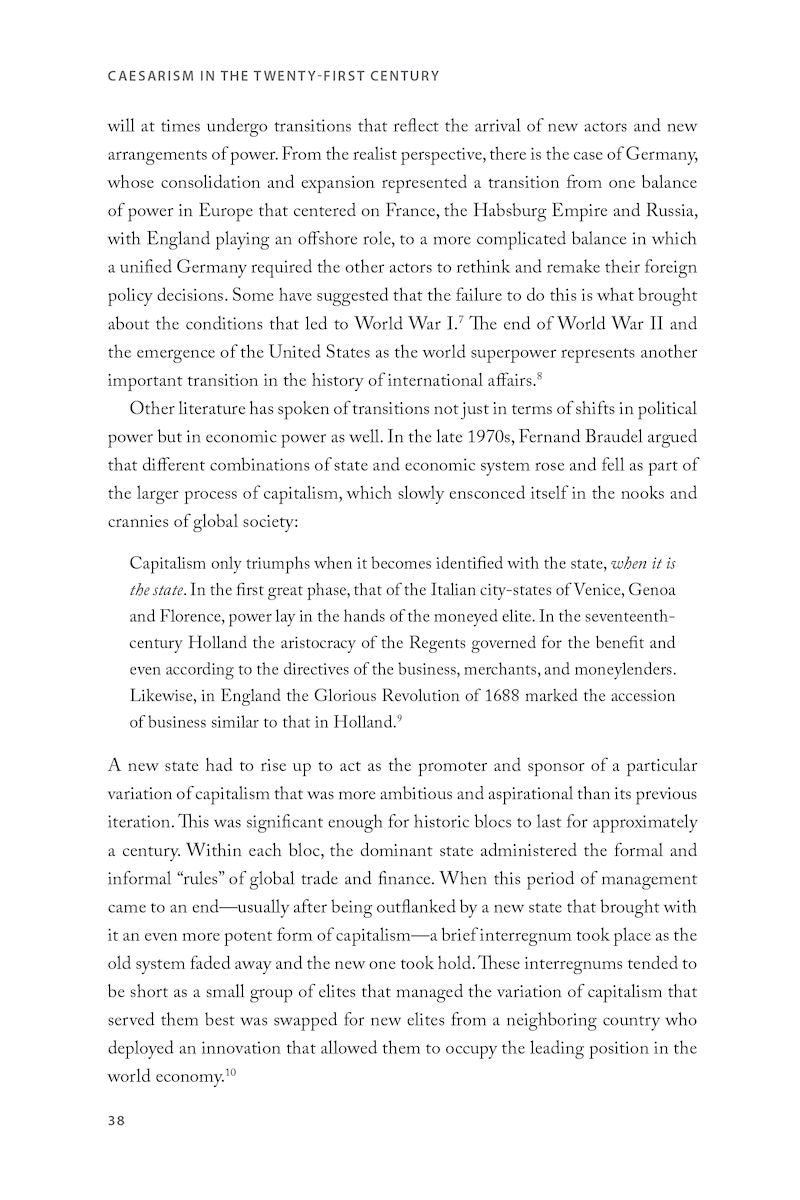
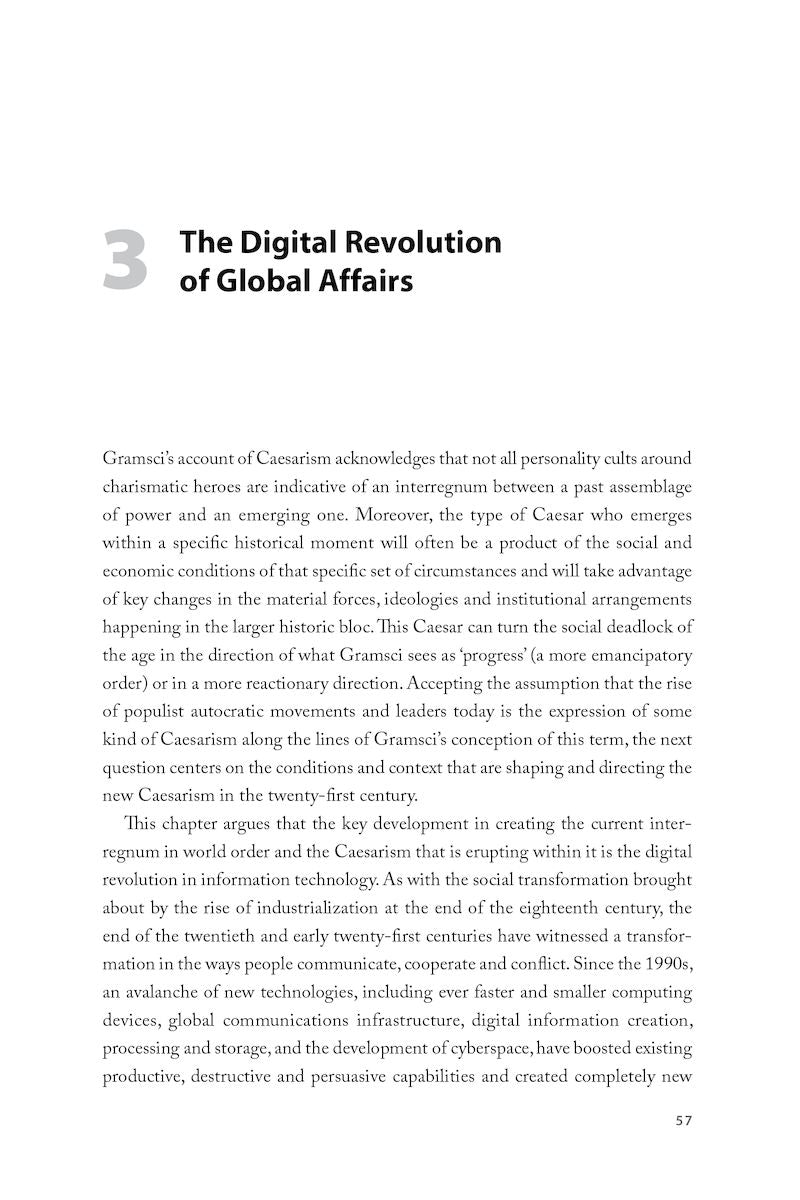
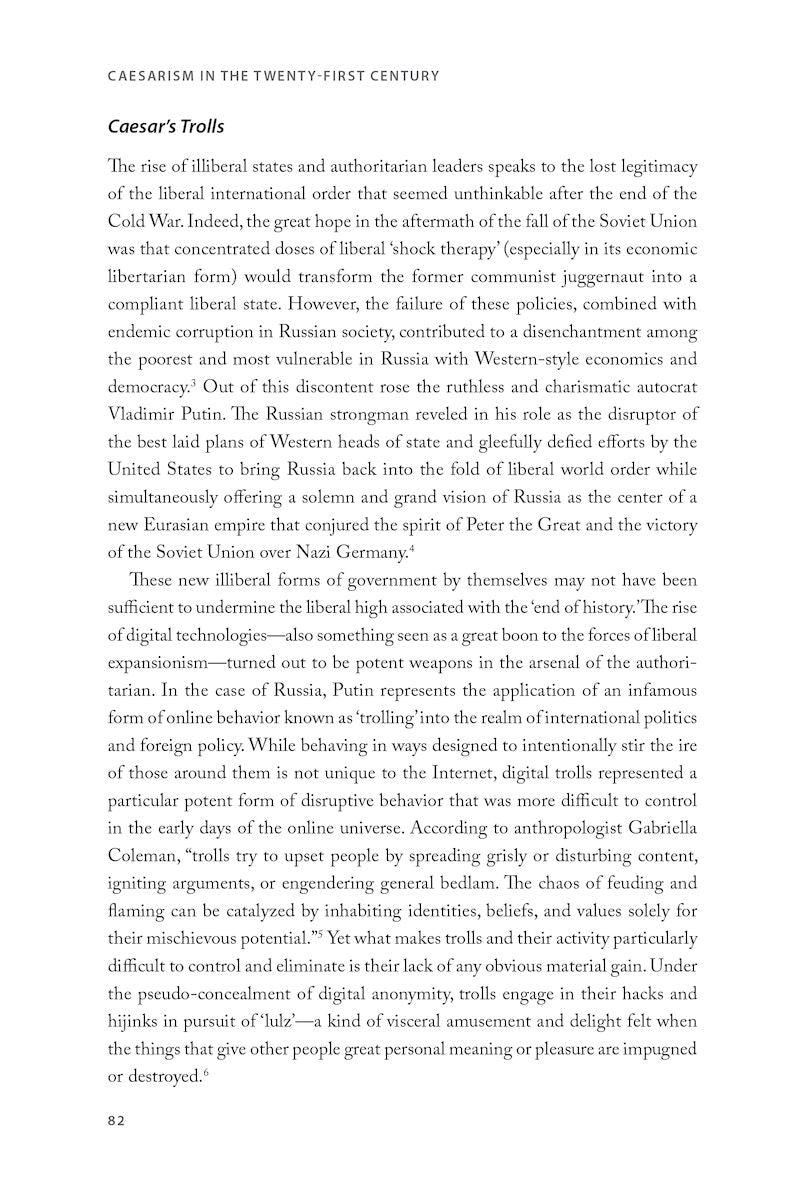
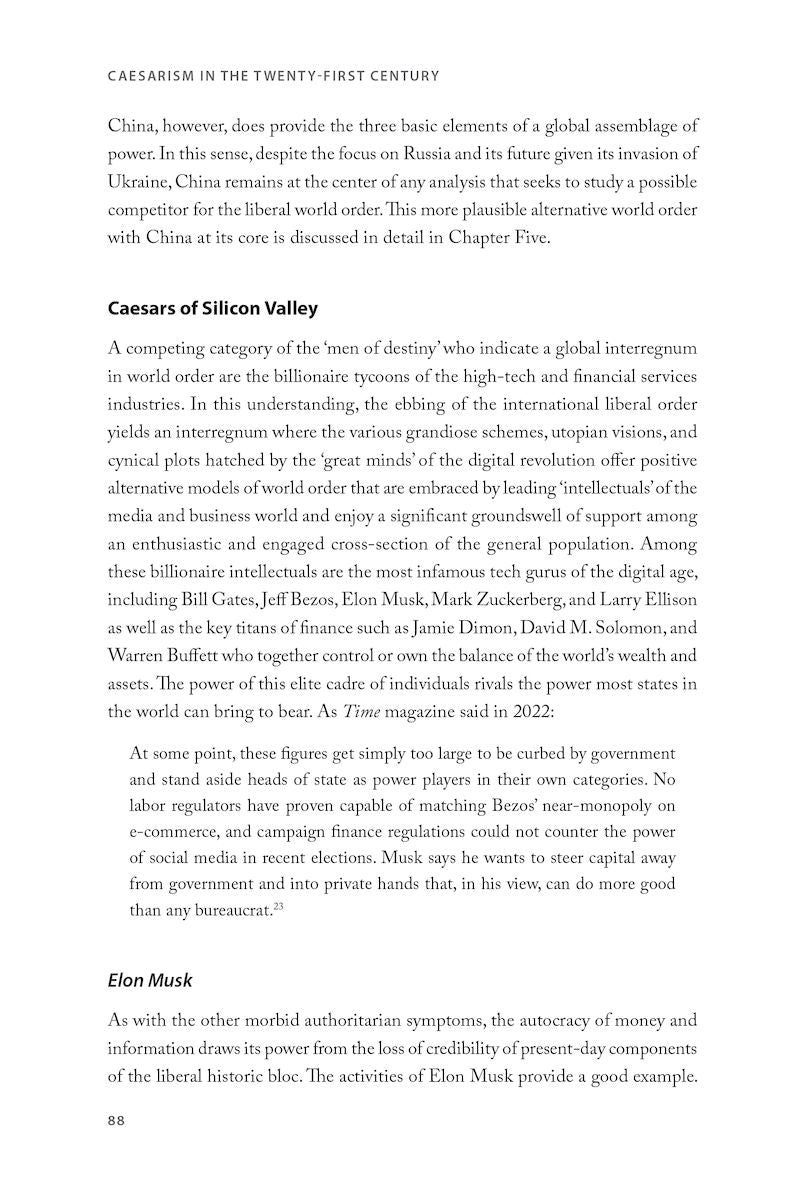
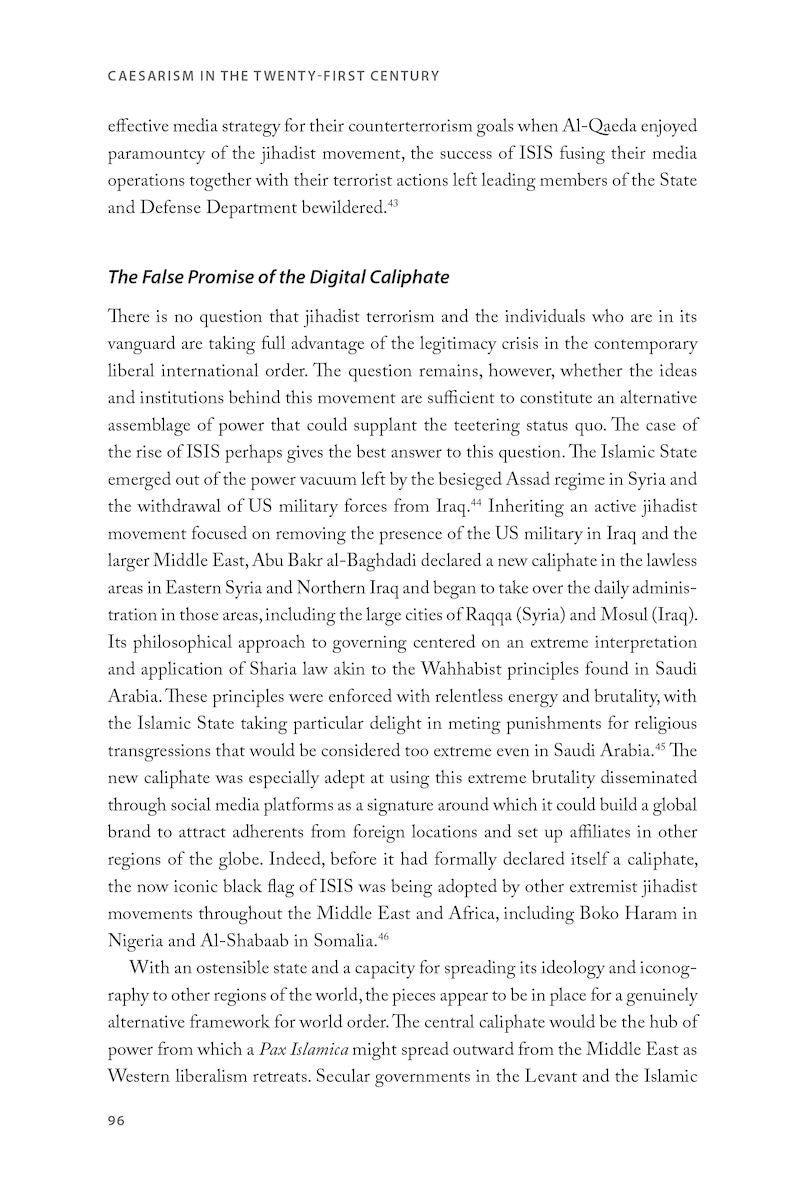
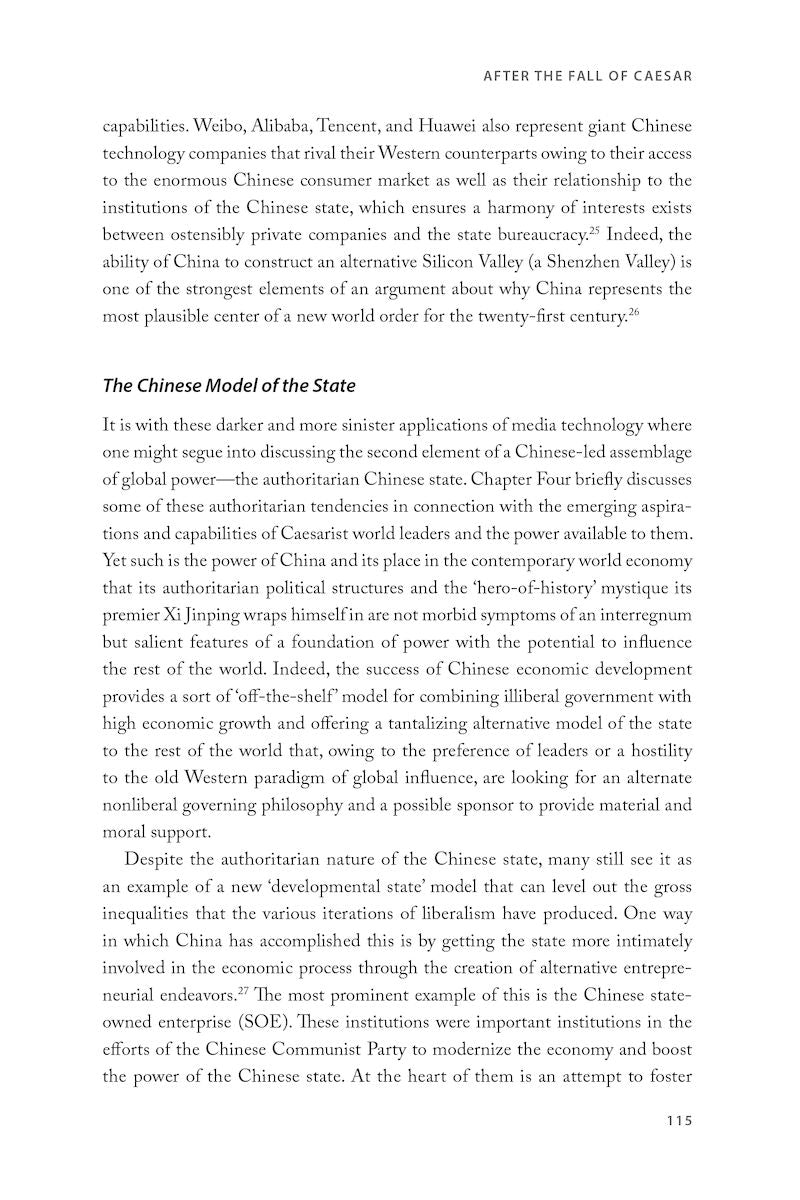
- 192 Pages
The troubles of the contemporary moment in history can be interpreted many different ways. Indeed, there has been no shortage of analysis and commentary on events like the attacks of September 11th, the Great Recession, the Arab Spring, the election of Donald Trump and the global pandemic. This book, however, argues that the most insightful analysis comes from the application of a neo-Gramscian framework that sees these events as “morbid symptoms” of an interregnum in world order between an older historic bloc of power losing its legitimacy and a still undefined new historic bloc in the process of being born.
Like previous interregnums, this period of transition is marked by eruptions of Caesarism where charismatic “men of destiny” boosted by populist fervor assume leading roles in the governing institutions of their states and make bids for global leadership or domination. Unlike previous eras, however, these “digital Caesars” have been most empowered by the proliferation of electronic information and media capabilities that have revolutionized human interaction since the end of the previous century.
At the head of superpower states and Silicon Valley technology companies, this new breed of Caesar is taking advantage of the loss of legitimacy in conventional institutions to remake the world according to their eclectic visions. Like previous Caesars, however, their power is fragile and will likely disappear assuming a new world order can take hold before they do permanent damage to human civilization.
Caesarism in the 21st Century offers a rigorous and compelling appraisal of the origins and implications of today’s increasingly precarious world order. Fattor not only carefully applies Gramsci’s theories about power, order, and change to explicate the emergence of a starkly unequal and tumultuous global system governed by assemblages of state and corporate elites amid a digitized societal landscape, but importantly, gives us the tools for thinking through and beyond this crisis.
Julianne Liebenguth, Assistant Professor of Political Science and Policy Studies, Elon University
In the growing body of work that explores the cracks and fissures of the liberal international order – the global rise of the far-Right, explosions of organized violence, and a climate hurtling towards catastrophe – the role of recent transformations in digital technology remain strangely under-explored. Caesarism in the 21st Century steps into this aporia, offering a Gramscian account of the present that explains why the social forces struggling for a more progressive vision of the the future have been stymied by emergent trends in information technology, while the caesars of the world have been empowered. Theoretically astute, historically-grounded, and eloquently written, Fattor’s analysis offers insight for so many of us struggling to understand ‘why the old world is dying, [but] the new world struggles to be born.’
John Hultgren, Professor of Environmental Politics, Bennington College
Introduction: From Monsters to Caesars
1. Caesarism and Crisis
2. From Interregnum to Caesarism
3. The Digital Revolution of Global Affairs
4. The Caesars of the Twenty-First-Century Interregnum
5. After the Fall of Caesar
Conclusion: The Paralysis of the Present
Notes
Bibliography
Index







